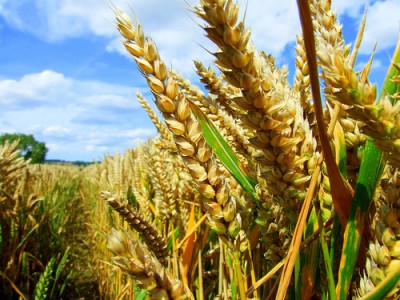Organic farmers garner more support in legal battle with Monsanto

The list of plaintiffs engaged in an ambitious lawsuit against Monsanto – the chemical company turned biotech/seed firm – just grew. The case has profound implications for farmers across the United States and the world, but you probably haven't heard about it.
In March, the Public Patent Foundation (PubPat), a not-for-profit legal services organization dedicated to protecting the public's interest in the patenting system, filed suit against Monsanto on behalf of 60 organic farmers and a bevy of agricultural organizations seeking assurance from the biotech giant that it would not sue if their patented genes were found to have contaminated the farmers' crops.
The case is the first of its kind and a necessary one for farmers who, without legal protections otherwise, operate under a pervasive fear that Monsanto will target them next with a patent infringement lawsuit. Monsanto has a history of suing organic or conventional farmers who have no contract with the company, and yet who've been found to unwittingly harbor crops with patented genes on their land. Yes, thanks to a 2002 Supreme Court decision, whose majority opinion was authored by ex Monsanto Lawyer Clarence Thomas, the issuing of utility patents for lifeforms has been permitted to continue unabated. That ruling was based on the landmark Diamond v. Chakrabarty Supreme Court decision of 1980 in which the U.S. Patent and Trademark Office was forced to administer exceptionally broad licensing allowances for individuals and corporations seeking to patent living organisms.
The operative part of the majority opinion in J.E.M. Ag Supply v. Pioneer Hi-Bred International reads as such:
As this Court recognized over 20 years ago in Chakrabarty, 447 U.S. at 308, the language of x 101 is extremely broad. ‘‘In choosing such expansive terms as ‘manufacture’ and ‘composition of matter,’modified by the comprehensive ‘any,’ Congress plainly contemplated that the patent laws would be given wide scope.’’ Ibid. This Court thus concluded in Chakrabarty that living things were patentable under x 101, and held that a man-made microorganism fell within the scope of the statute. As Congress recognized, ‘‘the relevant distinction was not between living and inanimate things, but between products of nature, whether living or not, and human-made inventions.’’ Id. at 313.
About 15 million farmers in the United States plant differing varieties of Monsanto's genetically modified (GMO) seed. Some GMO products such as corn, alfalfa and beets rely on wind for pollination. When wind carries GMO pollen to non-GMO plants in neighboring fields, Monsanto has standing to sue farmers whose crops have been contaminated. Currently, farmers are extremely hesitant to sue Monsanto for crop contamination because any admission by a grower that they possess unlicensed material, unwillingly or not, would leave them open to a patent infringement lawsuit.
If successful, the PubPat lawsuit will change this catch-22 dynamic. Plaintiffs will try to convince a judge that Monsanto's gene patents are unenforceable, as individual farmers have no way of controlling the act-of-God that is the wind. Furthermore, PubPat attorneys are seeking to invalidate the patents because they offer no “beneficial societal use.”
Earlier this month, PubPat announced that 23 more plaintiffs had joined the suit and that the original complaint had been amended to include recent correspondence with Monsanto lawyers. Heidi Ledford, a news blogger for Nature.com reported the following in a recent post:
“In a letter written on behalf of Monsanto, Seth Waxman, former solicitor general under Bill Clinton and a partner at the law firm WilmerHale in Washington, DC, said Monsanto has no intention of suing the farmers for patent infringement. 'Monsanto policy never has been, nor will be, to exercise its patent rights where trace amounts of its patented seed or traits are present in a farmer’s fields as a result of inadvertent means,' he wrote, echoing a statement Monsanto has also made on its website.”
Daniel Ravicher, PubPat executive director, responded to the act of placation by demanding from Monsanto a legally binding declaration that the company will not sue his clients for patent infringement.
The case is currently in its discovery phase. Ledford says PubPat attorneys will “compel Monsanto to hand over confidential data and email exchanges pertaining to in-house research involving its genetically modified crops.” Ravicher and his team will use this data to identify any new information pertaining to the environmental impact of GMOs.






